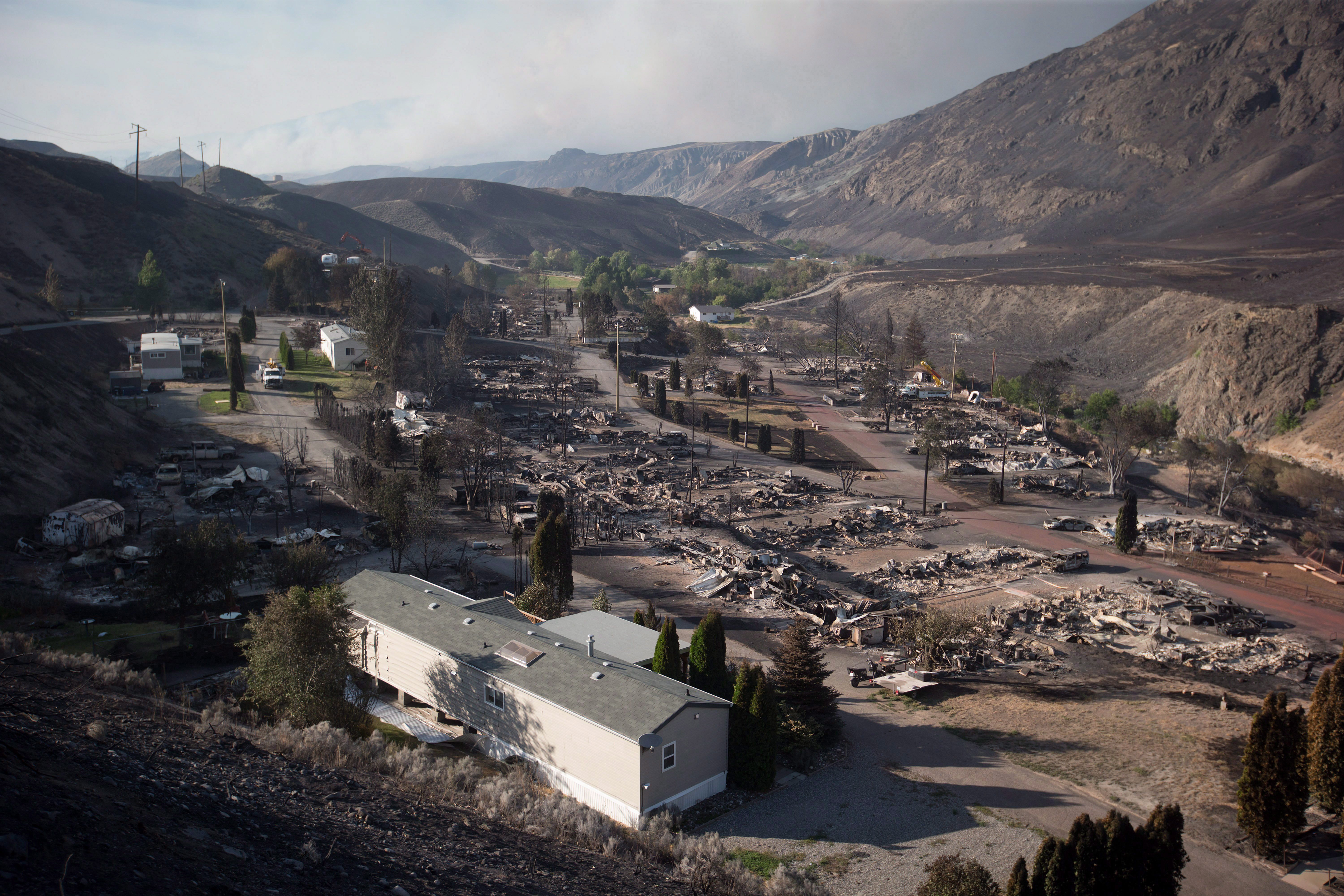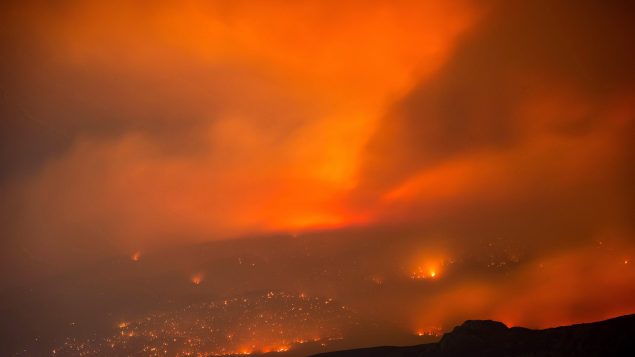Canadian scientists have found that human-induced climate change played a major role in the extreme wildfire in the western province of British Columbia (B.C.) in 2017. “As the climate continues to warm, we can expect that costly extreme wildfires seasons like 2017, in BC will become more likely in the future,” said Megan Kirchmeier-Young, a Canadian government scientist in a news release.
There are always forest fires in western Canada in the summer months, but a record fire occurred in B.C. in 2017 and then was surpassed in 2018.

Homes were flattened by fire that tore through 1.2 million hectares of land in British Columbia in the summer of 2017. (Darryl Dyck/The Canadian Press/July 9, 2017)
Millions exposed to smoke
In 2017, 1.2 million hectares burned and 65,000 people were forced to leave their homes. Millions more were exposed to harmful smoke.
The University of Victoria is a leader in research on climate modelling, mitigation and adaptation. Using modelling, researchers found that the extreme high temperatures were made 20 times more likely by human-induced climate change. In addition, they found the area burned seven to 11 time larger than would have been expected without human influence on the climate.







For reasons beyond our control, and for an undetermined period of time, our comment section is now closed. However, our social networks remain open to your contributions.